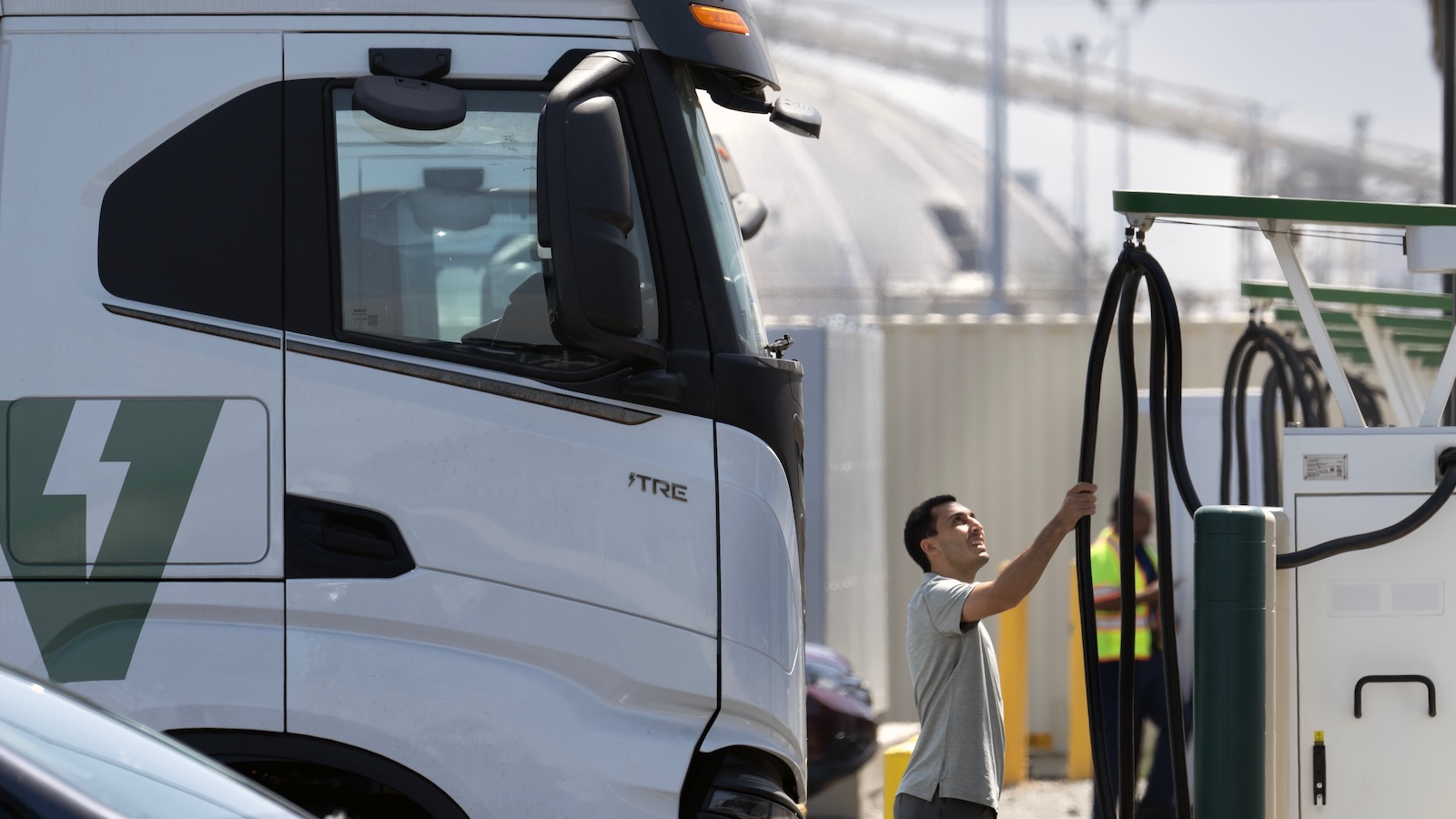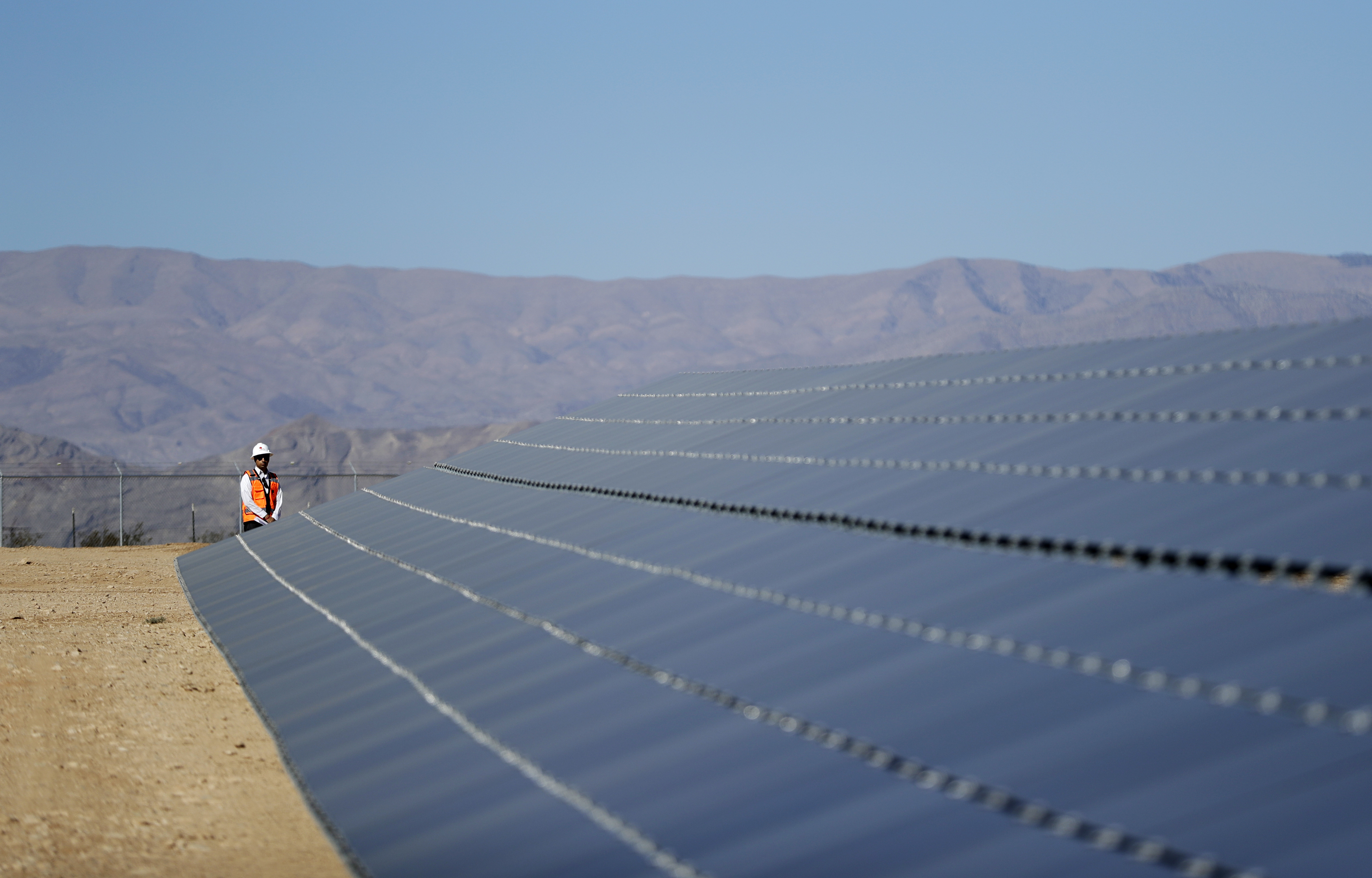The Trump administration appears to be backing away from its fiercely contested efforts to freeze a $5 billion federal funding program for electric vehicle chargers.
On Monday, Transportation Secretary Sean Duffy unveiled revised guidance for states to access their remaining share of $5 billion in formula grants from the National Electric Vehicle Infrastructure program. NEVI was created by the 2021 bipartisan infrastructure law to establish reliable charging along major highways, particularly in underserved parts of the country.
“Our revised NEVI guidance slashes red tape and makes it easier for states to efficiently build out this infrastructure,” Duffy said in a statement. “While I don’t agree with subsidizing green energy, we will respect Congress’ will and make sure this program uses federal resources efficiently.”
Groups representing industries involved in EV charger deployments welcomed the decision, which could allow states to restart projects that have in some cases been paused for months due to orders from the federal government. But environmental advocates warned that the move is just another delay tactic from an administration that’s exceeding its lawful authority by blocking money appropriated by Congress, for EV charging and beyond.
Monday’s announcement comes after months of legal challenges to the Department of Transportation’s February decision rescinding guidance for states to access their NEVI funding. That withdrawal, part of the Trump administration’s broader attack on Biden-era climate and clean energy initiatives, forced states to halt work underway on contracts and projects representing roughly half of the $5 billion in program funding.

Litigation hasn’t panned out in the administration’s favor so far. In June, a federal judge ordered the Transportation Department to release about $875 million for the states that had contested the freeze, including Arizona, California, Colorado, Delaware, Hawaii, Illinois, Maryland, New Jersey, New Mexico, New York, Oregon, Rhode Island, Washington, and Wisconsin.
Some of those states have been able to access NEVI funding since then, said Daniel Wilkins, a policy analyst at research firm Atlas Public Policy.
However, a chunk of the funding remains unavailable, and the District of Columbia and 20 states are continuing their fight in court in the hopes of getting the Trump administration to unfreeze the rest. The federal government’s actions have disrupted ongoing contracts with EV charging developers and caused “costly delays in project implementation,” according to an August court filing.
The 20 states suing the Transportation Department are led by Democratic governors, but the NEVI program sets aside money for red and blue states alike. Texas is set to receive nearly $408 million, more than any other state, and Ohio opened the first NEVI-funded charging station.
Under Monday’s order, states can now reapply for funding within the next 30 days.
Getting the NEVI program back up and running will “help to ensure that EV drivers can find charging when and where they need it,” Albert Gore, executive director of the Zero Emission Transportation Association, a trade group that includes automakers, battery manufacturers, mining companies, charging manufacturers, and electric utilities, said in a Monday statement. In that light, the new guidance “provides important regulatory certainty for the companies and state departments of transportation that are implementing this program on the ground.”

But the Sierra Club, one of seven nonprofit groups that have joined the legal challenges against the NEVI funding freeze, noted that the department’s guidance does not reinstate those plans, but instead requires states to resubmit them, “further delaying the nationwide EV charging buildout.”
“While the Trump administration has moved away from anti-EV rhetoric in this guidance in response to federal litigation filed by over a dozen states, Sierra Club, and other nonprofit organizations, it is still illegally withholding billions Congress dedicated to EV charging,” Katherine García, director of Sierra Club’s Clean Transportation for All campaign, said in a Monday statement. “We will continue to work towards the recovery of nationwide NEVI funding.”
A spokesperson for the Washington state attorney general’s office, one of the lead plaintiffs in the lawsuit by the 20 states and D.C., said the office is reviewing the revised guidance.
Monday’s announcement also weakens the program’s support for lower-income and disadvantaged communities. It removes requirements that the funding “ensure that the deployment, installation, operation, and use of EV charging infrastructure achieves equitable and fair distribution of benefits and services,” and eliminates Biden-era Justice40 requirements that at least 40% of the benefits of the projects be targeted toward disadvantaged communities.
Duffy justified these changes in Monday’s statement. “If Congress is requiring the federal government to support charging stations, let’s cut the waste and do it right,” he said.
The NEVI program has made slow progress. The Biden administration hoped to spur the buildout of 500,000 public charging stations by 2030, up from about 206,000 today. But just 378 NEVI fast chargers have come online as of this month, according to Wilkins at Atlas Public Policy. And of the $5 billion in funds, only about $615 million was under contract for constructing almost 1,000 charging sites as of February, according to EV-charging data firm Paren.

Monday’s announcement highlighted that slow start as a “clear signal of the program’s failure.” Both Republicans and Democrats have criticized the pace of deployment under the Biden administration.
The NATSO and SIGMA trade groups, which represent truck stops and fuel retailers, respectively, praised the Transportation Department’s new guidance, saying in a Monday statement that it “marks a constructive step toward addressing the ongoing challenges associated with deploying EV charging infrastructure while also ensuring that taxpayer dollars are spent wisely and effectively.”
But Sierra Club’s García said the Trump administration’s freeze has only further delayed the work that Monday’s order purports to streamline. “It’s ironic that this guidance was sold as cutting red tape, yet all it has accomplished is more than half a year of needless delay,“ she said.
The country doubled its number of public charging ports between 2020 and last year, and over 7,100 public fast-charging ports came online in the first half of this year, according to Atlas Public Policy. Still, only 23 NEVI chargers have opened since February.
That delay is particularly harmful to parts of the country that lack the EV adoption to make charger investments worthwhile for private-sector developers — a hurdle NEVI was meant to help overcome. Rural communities in particular are lagging in fast-charger deployments.
Loren McDonald, Paren’s chief analyst, noted that Monday’s revised guidance does give individual states more flexibility and control over how they spend NEVI dollars, which could speed project selection and construction.
However, it could also make the program less effective at serving “charging deserts,” he said — a term for places where EV charging companies like Tesla, EVgo, and Electrify America were “not deploying stations because utilization would be low.”
“One of the main factors holding many people back from getting an EV is they dream of that one road trip in rural Wyoming and won’t get an EV because they’ve heard there are no charging stations,” he said. “NEVI was designed to fix that perception in reality. But I worry that if states have complete control over locations, they may not focus on solving the charging-desert issue.”


